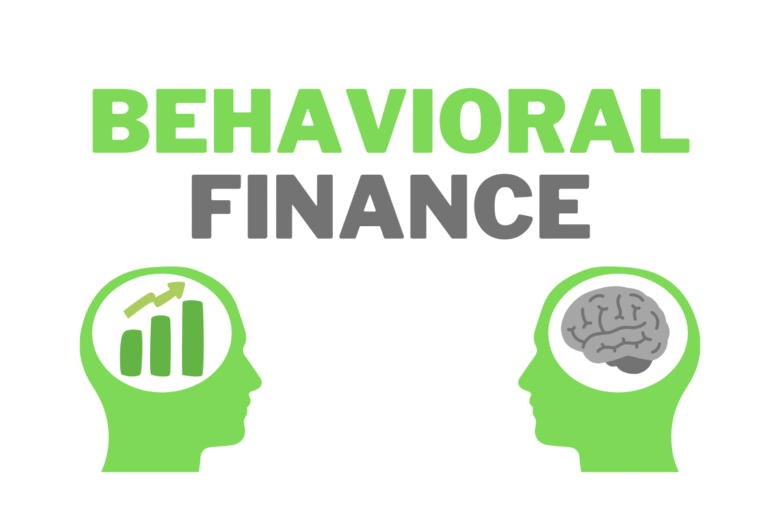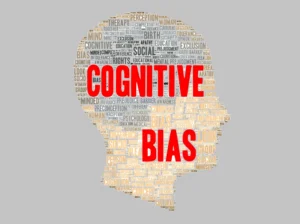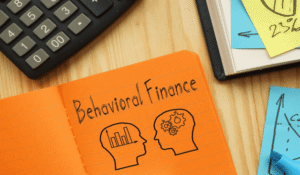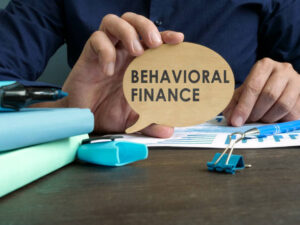Behavioral economics has become a crucial discipline recently, combining psychology and economics to shed light on the seemingly irrational financial decisions people often make. Traditional economic theories assume that people are rational beings who consistently make decisions in their best interest, carefully weighing risk, return, and probability. However, this is not the case in practice. Biases, emotions, and habits often influence people’s financial decisions, potentially leading to undesirable consequences. Behavioral economics plays a crucial role in the financial sector, offering companies insights into how they can develop better products, policies, and tools to help people make better choices.
The Impact of Biases on Financial Behavior
Behavioral economics examines how various biases influence people’s financial decisions. Loss aversion is one of the most common biases. This means that people fear loss more than gain. Therefore, investors often avoid risky opportunities, even when the potential for profit is significant. Overconfidence is another bias. Overconfidence can lead to unnecessary risks in trading or investing. Furthermore, people exhibit a “present bias,” meaning they prioritize short-term rewards over long-term gains. This bias is why many people don’t save for retirement. Financial professionals can analyze these biases and develop programs to help people overcome them.
Nudges in Finance
Nudges are a well-known concept in behavioral economics, with various applications in finance. Nudging helps people make better financial choices by adjusting the way options are presented without restricting their freedom. For example, automatically enrolling employees in retirement savings plans has a significant impact on participation rates because most people stick with the default options. Mobile banking apps also use nudges such as reminders, savings goals, and visual progress charts to encourage people to save more regularly. These subtle changes make it easier for people to use their money as they see fit in the long run.
The Role of Behavioral Economics in Investment Decisions
Behavioral economics has had the greatest impact on how people invest. Traditional finance assumes that investors are intelligent and correctly assess risk and return. However, the rise and fall of markets demonstrate how the emotions and behaviors of the masses influence investment decisions. By studying how people think, behavioral economics helps explain phenomena such as panic selling, overtrading, and speculative bubbles. Investment advisors and banks are increasingly applying these concepts to develop tools that help people manage their emotions. Automated investment platforms, for example, eliminate human impulses and focus instead on long-term strategies.
Technology and Behavioral Finance
With the rise of digital platforms and fintech, behavioral economics has become increasingly important in the financial sector. Mobile apps, online banking, and digital investment platforms apply behavioral principles to help people develop beneficial habits. For example, programs use mental shortcuts to automatically add up purchase amounts and deposit the remaining amount into a savings account, making saving easy. Robo-advisors use algorithms to reduce the influence of biases like overconfidence and fear. They do this by offering investors customized investment portfolios to maintain self-discipline. Technology and behavioral economics work hand in hand to make it easier for people to manage their money and achieve their financial goals with less stress and more consistency.
Behavioral Economics and Debt Management
Behavioral economics has also had a significant impact on debt. People often don’t realize how much long-term debt can cost them or don’t prioritize paying it off. Financial institutions are now using behavioral data to design repayment plans that are easier to maintain. For example, setting automatic payments can reduce the likelihood of defaulting, while gradually increasing repayment amounts can make the repayment process appear easier. Credit counseling programs also use nudges and framing strategies to encourage people to stick to their debt repayment plans. By addressing psychological barriers, behavioral economics helps people get out of debt more effectively.
Challenges and Ethical Considerations
Behavioral economics has improved the financial system in many ways, but it has also raised concerns and ethical questions. Some critics argue that nudges and behavioral interventions can be manipulative and subtly influence people to make decisions that benefit the institution rather than the customer. For example, banks could set defaults that make it easier for customers to borrow instead of save. Ensuring that the applications of behavioral economics are clear and actually help people remains a challenge. People can also become overly dependent on nudges, which can hinder their ability to be financially responsible in the long run. As behavioral economics becomes increasingly important in the financial world, it is crucial to balance its influence with ethical responsibilities.
Conclusion
Behavioral economics is transforming the financial world by revealing how psychological factors influence financial choices. Behavioral insights are changing the way individuals and organizations manage money, from saving and investing to managing debt and formulating policy. By understanding that people aren’t always rational and that emotions and biases play a significant role, the financial system can better support individuals in real-world decision-making. Policymakers are applying these ideas to foster a better-functioning economy on a broader level. Nudges, standard strategies, and digital tools help people make smarter financial decisions. While questions remain unanswered, particularly regarding ethics, behavioral economics has already had a significant impact on the financial world. Technology’s increasing integration with human psychology will only intensify this influence.
FAQs
1. What does behavioral economics mean in finance?
It applies psychology and behavioral science to study how people make financial decisions, which are often based on emotions and biases rather than pure reasoning.
2. How can behavioral economics improve investing?
It This field explains why investors engage in irrational behaviors, such as panic selling or following the crowd, and has led to the development of technologies like automated investing that assist people in avoiding emotional mistakes.
3. What role do nudges play in finance?
By By making these actions easier, more intuitive, or more automated, nudges can assist individuals in making better financial choices, such as saving or paying off debt, while still preserving their freedom of choice.
4. Can behavioral economics help people manage debt?
Yes, Behavioral economics can assist individuals in paying off their debt on time by utilizing tools such as automatic payments, gradual payment plans, and reminders. Why is behavioral economics so important for decision-makers?
It helps governments develop financial laws and programs based on people’s actual behavior, which in turn encourages more people to save, pay taxes, and develop favorable financial habits.




